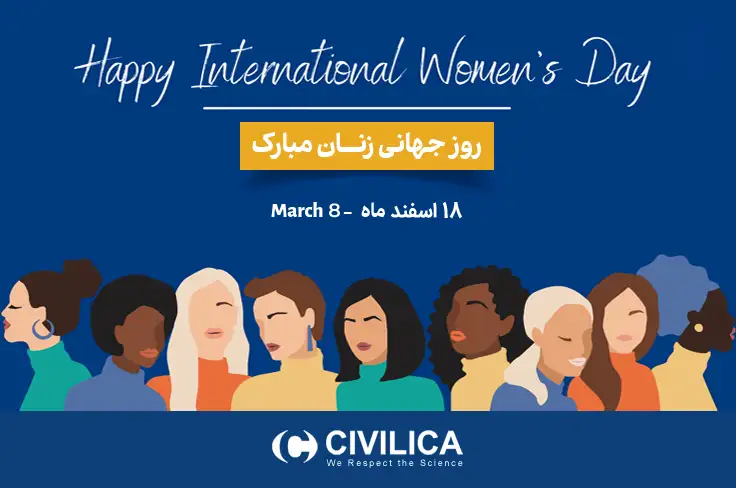روز جهانی زنتقویم علمی ایران

۸ مارس به عنوان «روز جهانی زن» گرامی داشته می شود؛ روزی برای تجلیل از دستاوردها و مبارزات زنان در زمینه های اجتماعی، اقتصادی، فرهنگی و سیاسی. این روز به منظور افزایش آگاهی در مورد حقوق زنان و برابری جنسیتی به وجود آمده و به عنوان فرصتی برای ارزیابی دستاوردها و چالش های پیش روی زنان در سرتاسر جهان شناخته می شود. تاریخچه این روز به اوایل قرن بیستم برمی گردد که زنان کارگر و فعالان حقوق زنان در کشورهای مختلف برای حقوق خود، از جمله حق رای و شرایط کاری بهتر، به اعتراض پرداختند.
روز جهانی زن نه تنها یادآور تلاش های پیشینیان برای بهبود وضعیت زنان است، بلکه دعوتی است به ادامه این مبارزات برای دستیابی به برابری و عدالت اجتماعی. در این روز، برنامه ها و فعالیت های مختلفی از جمله راهپیمایی ها، کنفرانس ها و کارگاه ها در نقاط مختلف دنیا برگزار می شود تا صدای زنان و نیازهای آن ها شنیده شود. این روز فرصتی است تا افراد و جوامع به ترویج برابری جنسیتی بپردازند و از حقوق زنان حمایت کنند، زیرا برابری جنسیتی نه تنها به نفع زنان، بلکه به نفع تمام جامعه است و به توسعه پایدار و پیشرفت جامعه کمک می کند.
In 1945, the Charter of the United Nations(link is external) became the first international agreement to affirm the principle of equality between women and men. The UN celebrated its first official International Women's Day on 8 March during International Women’s Year in 1975. Two years later, in December 1977, the General Assembly adopted a resolution proclaiming a United Nations Day for Women’s Rights and International Peace to be observed on any day of the year by Member States, in accordance with their historical and national traditions.
International Women’s Day first emerged from the activities of labor movements at the turn of the twentieth century across North America and Europe. The first National Woman's Day was observed in the United States on February 28 1909, which the Socialist Party of America dedicated in honor of the 1908 garment workers' strike in New York where women protested against harsh working conditions. In 1917, women in Russia chose to protest and strike under the slogan "Bread and Peace" on the last Sunday in February (which fell on 8 March on the Gregorian calendar). Their movement ultimately led to the enactment of women’s suffrage in Russia.
International Women's Day is an occasion to celebrate the progress made towards achieving gender equality and women's empowerment but also to critically reflect on those accomplishments and strive for a greater momentum towards gender equality worldwide. It is a day to recognize the extraordinary acts of women and to stand together, as a united force, to advance gender equality around the world.